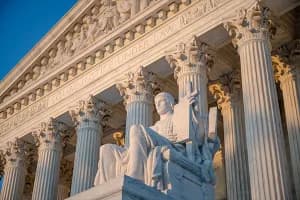Consistent with previous quarters, the two RESPA cases retrieved this quarter examined referral fee and kickback schemes. In one case, the borrowers alleged violations of RESPA, claiming the lender and purchaser failed to disclose the financial benefit to them resulting from the sale of the property and that the payments were designed to create a windfall. The court declined to consider the merits of these claims on the basis that that they were more pertinent to the borrower’s pending appeal of the state foreclosure action. In the second case, the court determined that the borrower’s RESPA claims based on alleged kickbacks and unearned fees was barred by the statute of limitations.
A. Cases
1. Mantovani v. Wells Fargo Bank, N.A., No: 18-cv-0886(PGS)(DEA), 2018 WL 3849907 (D. N. J. August 13, 2018)
The court declined to consider borrower’s RESPA claims that on basis that they were more pertinent to the borrower’s pending appeal of the state foreclosure action.
Borrowers obtained mortgage loan from a lender but were unable to make payments. The lender subsequently brought a successful foreclosure action, and the property was sold. The borrowers then filed a complaint against the lender and purchaser alleging RESPA violations based on disproportionate gain. The borrowers claimed that the lender and purchaser failed to disclose the financial benefit to them resulting from the sale of the property and that the payments made between the lender and purchaser were misleading and designed to create a windfall. The court declined to review the merits of the borrowers’ claims, noting review of this issue was more appropriate in the pending appeal of the state foreclosure action was appropriate. Lender and purchaser’s motion to dismiss granted.
2. Myrick v. Bank of America, No. 1:18-cv-00248, 2018 WL 3702463 (N.D. Ga. April 12, 2018)
Borrower’s RESPA claim based on alleged kickbacks and unearned fees was barred by the statute of limitations.
Borrower entered in to a mortgage loan agreement with Bank of America for the purchase of a property. Upon default of this loan, Bank of America initiated foreclosure proceedings. The Borrower alleged that Bank of America violated RESPA by failing to disclose that it would gain a financial benefit from the borrower’s loan. While the borrower failed to articulate the specific RESPA provision(s) allegedly violated, the allegations suggested that the borrower’s claims stem from RESPA’s prohibition on kickbacks and unearned fees. The court found that the Borrower’s allegations for violation of RESPA were insufficient as they failed to identify the referenced kickbacks; state that they were made in exchange for a referral or for “no, nominal, or duplicative services”; describe the financial burden the borrower suffered; or explain how any damage the borrower suffered was a result of Bank of America’s acts or omissions. Additionally, the court found the allegations were time-barred and therefore dismissed borrower’s claims.
B. Statutes and Regulations
North Carolina
A North Carolina regulation clarified that the premium rates charged for insuring against loss by reason of encumbrances and defective title and for insuring real estate closing services shall be based on the purchase price of the real estate being conveyed or the loan amount and shall not be established as flat fees. If a title insurer has also issued title insurance protecting a lender or owner against loss by reason of encumbrances and defective title, the insurer shall charge one undivided premium for the combination of the title insurance and the closing services insurance. 1
C. Volume of Materials Retrieved
RESPA issues were identified 1 time in 1 case (see Tables 1, 2). One regulation was retrieved this quarter (see Table 1).








